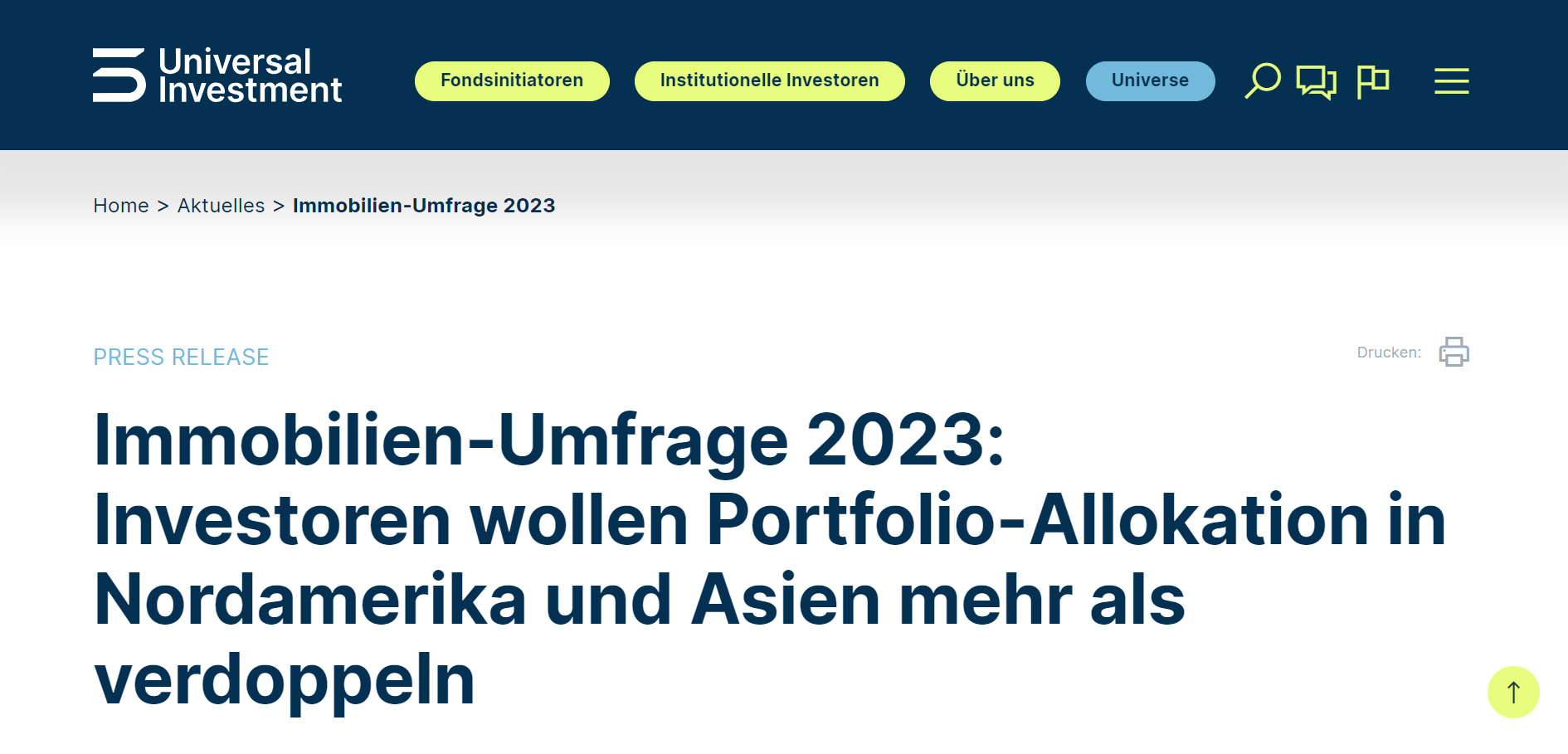

As part of the real estate survey, which Universal Investment conducted for the twelfth time in 2023, institutional investors with assets under management totaling around 55 billion euros were asked about their investment behavior, market trends and their assessments. The central result: Investors are striving for greater diversification according to target markets and types of use. In particular, stocks in North America and the Asia-Pacific region are to be expanded by nine and eight percent, respectively. With a share of 40 percent, office properties are currently the dominant asset class in existing portfolios, followed by retail (18 percent) and residential (16.3 percent). In the future, those surveyed want to invest more in the residential segment and in other segments such as medical centers or commercial parks. For the residential segment, the aim is to expand the portfolio allocation by 7.7 percent - the biggest winner in the survey. At the same time, return expectations are rising, while the risk appetite of institutional investors is falling. Three out of four investors continue to see the role of real estate as protection against inflation as an important advantage.
Comment by Dirk Hasselbring
The results of the survey show once again: Professional investors value real estate, especially in times of increased inflation, and particularly focus on residential properties. Rising return expectations as interest rates rise are rational, as is a focus on secure core and residential properties. The key word diversification is of course also crucial. However, Germany in particular offers unique potential for risk diversification with its decentralized economic, political and cultural structure. The housing markets in Wolfsburg and Wiesbaden, for example, differ in important respects. I am not convinced that German investors should invest in unfamiliar markets in East Asia in order to adequately protect themselves - not to mention political uncertainties and currency risks. A long-term investment approach that implements today what is needed tomorrow seems more promising: energy-efficient, sustainable living space in local metropolitan areas.

Managing Director
d.i.i. Investment GmbH
